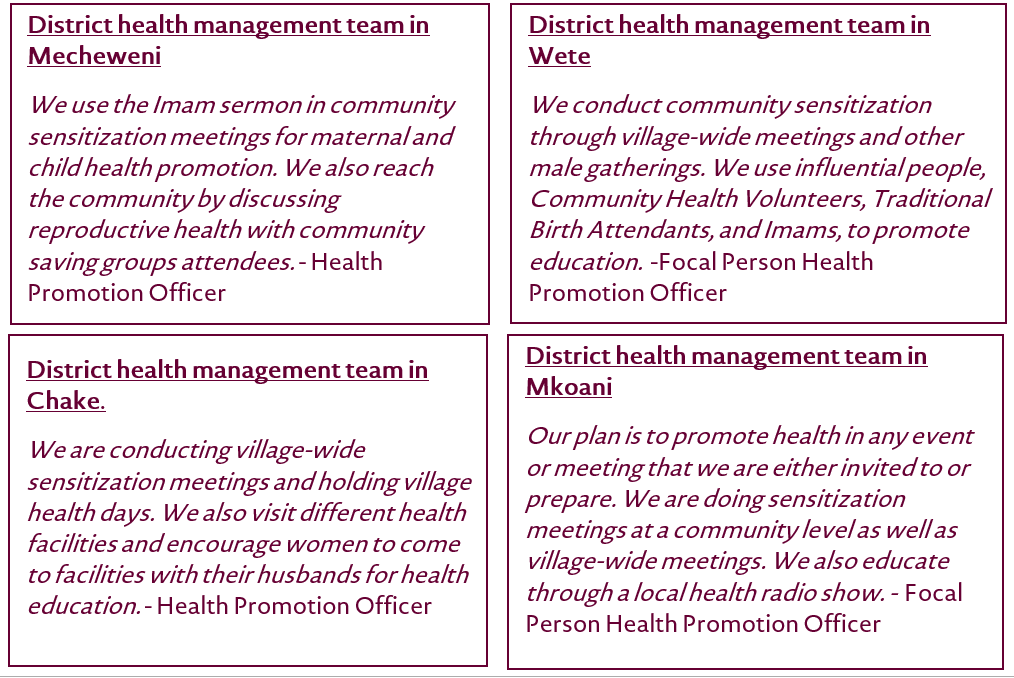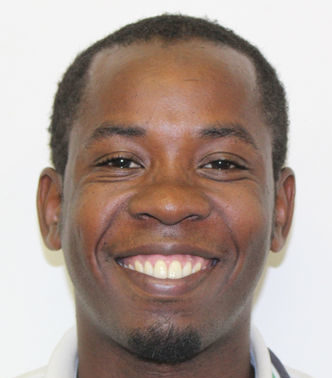We work with Imams—Muslim religious leaders—to educate Zanzibari men on reproductive health and improve community engagement in our Safer Deliveries program, where community health volunteers use a digital solution to improve access to quality maternal and neonatal healthcare.
In Zanzibar, Tanzania men are often the primary decision makers for their families and thus must give consent for their wives and daughters to participate in the Safer Deliveries program and deliver at health facilities. Since the beginning of the Safer Deliveries program in 2011, D-tree has been engaging male partners in the birth planning process by inviting them to join their wives during home visits with community health volunteers, so that they are involved in birth planning and preparation discussions during early stages of pregnancy and give permission for a facility delivery. This advance planning works.
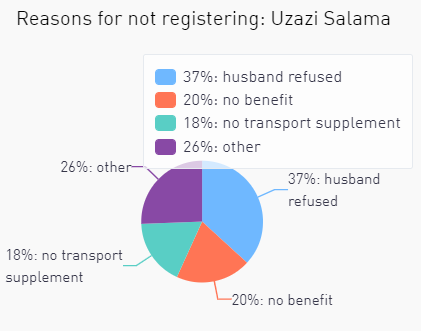
Based on data generated through the program, we can see that women whose partners give advance permission for a facility delivery are more likely to actually deliver in a health facility with a skilled birth attendant. Yet engaging male partners only after women are registered in the program is not enough. Our dashboards show that 37% of the women who refuse to register in the Safer Deliveries program decline because their male partner does not approve of their participation.
Discussions with male partners, community health volunteers and government health teams have revealed that Zanzibari men often lack sufficient knowledge about reproductive health and the Safer Deliveries program, and misconceptions often lead men to prohibit their wives from participating in the program. Understanding this issue, as well as the highly religious culture in Zanzibar, we engaged the Muslim community religious leaders, Imams, to fill the education gap on 1) reproductive health, 2) the importance of facility-based services, and 3) how the Safer Deliveries program can support pregnant women and children to have healthy and productive pregnancies and deliveries.
Educating Men through Friday Prayer
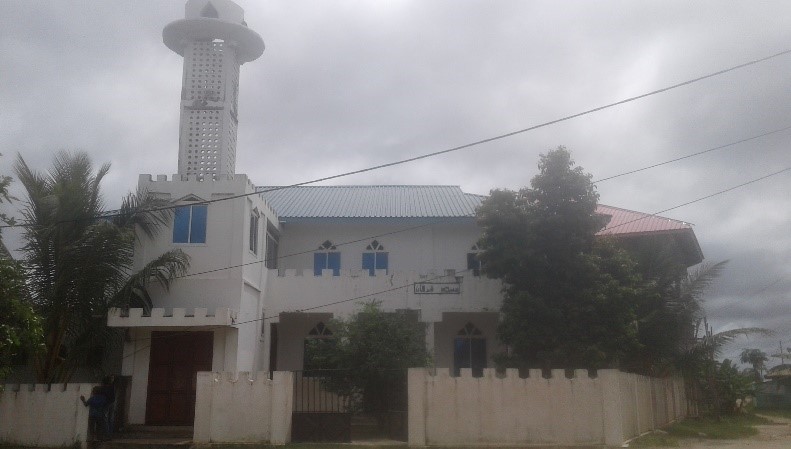
To support Imams to educate Zanzibari men, we worked with the Ministry of Health and a local Muslim organization, UKUEM, to draft an educational sermon about reproductive health for Imams to deliver during Friday prayers. According to an Imam from Wara, Pemba, Friday prayers are, “a very good platform to share this information, since Friday is the only day of the week where many Muslims gather for prayer and get information from their leaders from a faith point of view.” Friday prayers must be performed with at least 40 men, so it’s an efficient way of reaching a lot of people at once. In collaboration with the national and district health teams and UKUEM, we oriented forty of the most influential Imams in Pemba to the speech and asked them to deliver it during Friday prayers in order to reach least 1,600 males and families.
The Imam Sermon on Reproductive Health
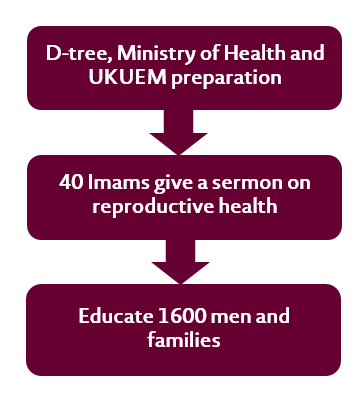
“My fellow Muslims, our Khutba (sermon) today will focus on the importance of good health according to the Islamic view,” says each Imam in the beginning of the Friday speech. The Imam continues to focus specifically on reproductive health and the importance for safe deliveries; “Reproductive health is a wide concept. Having knowledge on its components is something very important as it touches our everyday lives, including relationships and child care.” The Imam emphasizes the importance of reproductive health education and its relevance for different women—those who have or have not yet delivered children, so that men in the audience understand the relevance for their families. A few highlights are below:
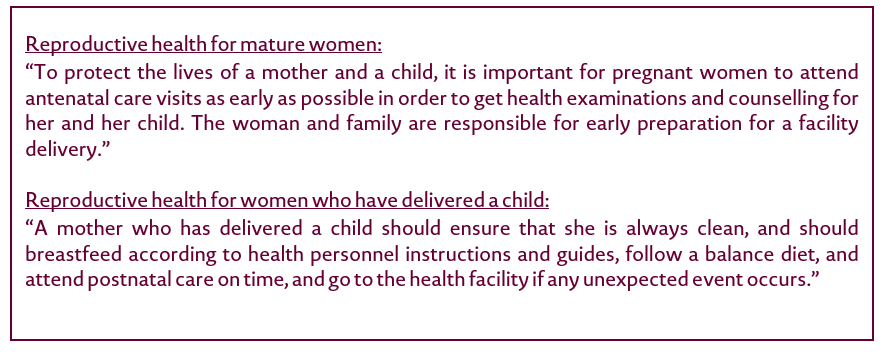
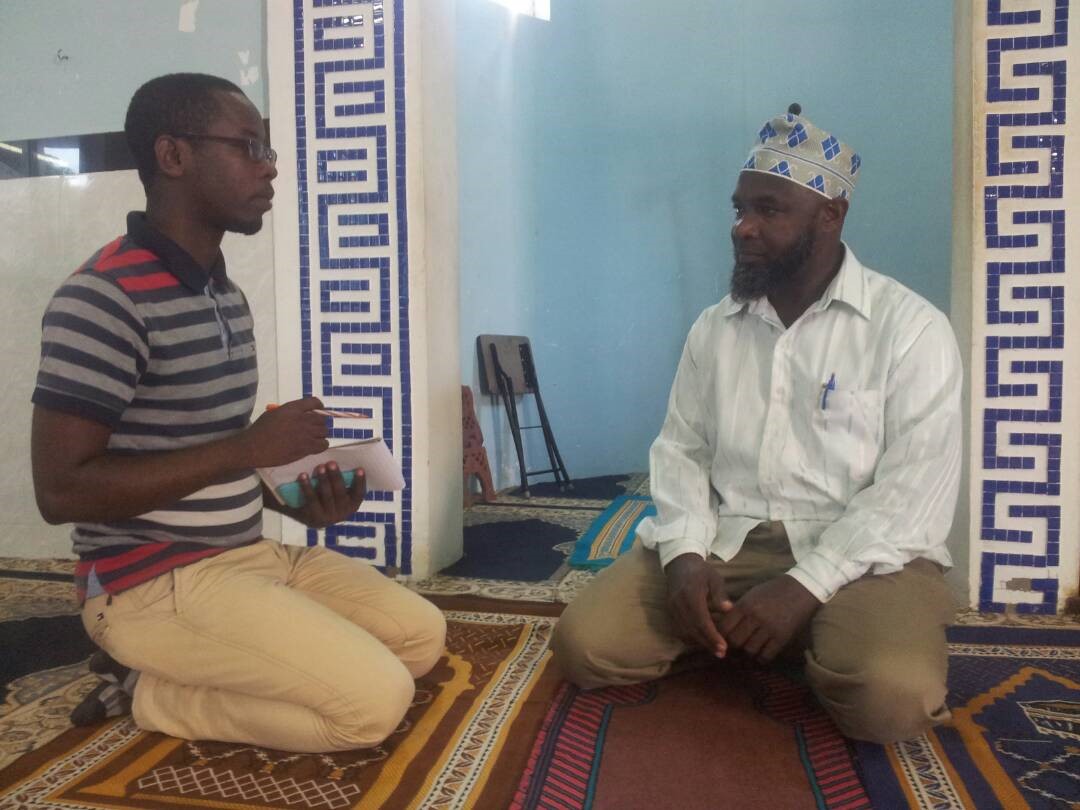
The sermons were delivered successfully and Imams have been enthusiastic about the initiative. An Imam from Wara, Pemba said, “This initiative is an opportunity for me to use my skills to sensitize on reproductive and child health.” After the speech, the Imam said, “People were amazed and asked me to prepare such kind of education often and early.”
We found that men even changed their perspective after the speech and recognized the value of the program. Here are some reactions from men who attended the Friday Prayer in Wara- Chake Chake Pemba last month.
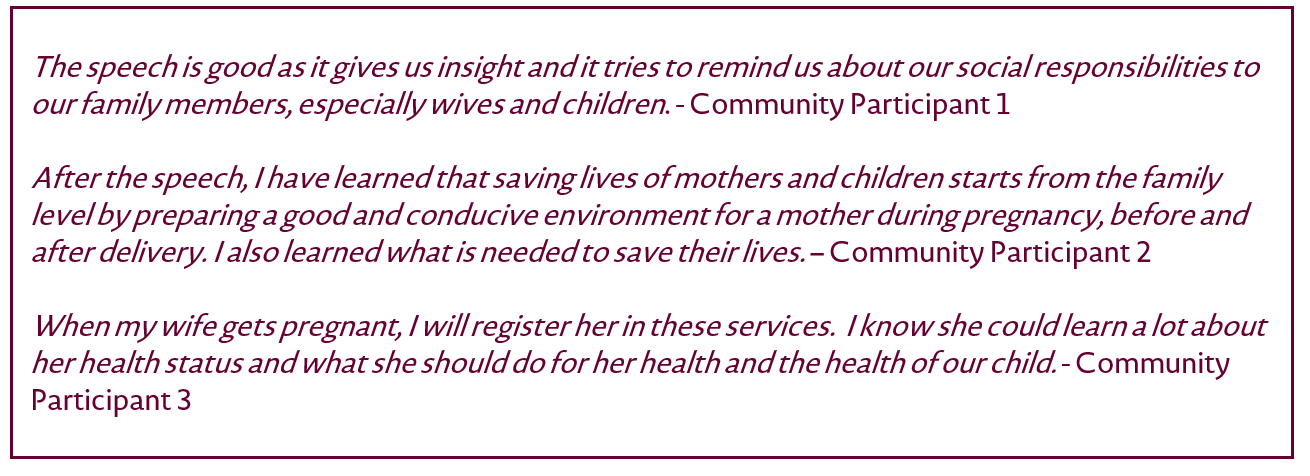
Community Engagement Monitoring and Evaluation

hrough this initiative, we have trained forty Imams in Pemba. Thirty-one Imams have already delivered the speech, thereby reaching at least 1,240 men. As we move forward with engaging males in the Safer Deliveries program, we’ll use our dashboards to track the success by evaluating increases in program engagement and facility-based deliveries in Pemba.
Building on Safer Deliveries Imam Engagement
To build on community and district level participation in the Imam engagement initiative, district health management teams visited mosques to see the Imams in action. The teams were pleased with the initiative and the positive reaction they saw in the community and have committed to providing ongoing support. They’ve also agreed to carry out supplementary community engagement activities to continue to engage men in reproductive health and the Safer Deliveries program. Below are some initiatives they are pursuing as they continue this education, and we look forward to continuing our collaboration with them!
